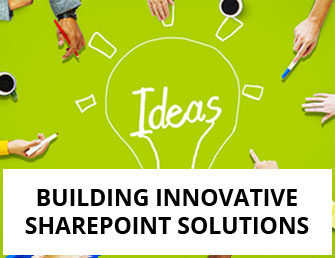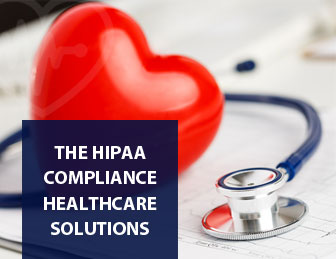Customer relationship management, or CRM, is integral to succeeding in today’s modern business landscape. CRM systems help businesses manage their customer interactions efficiently. But organizations are evolving quickly, which makes them outgrow their existing CRM solutions. One common business scenario includes transitioning from an SAP CRM system to a Salesforce CRM application. Undoubtedly, CRM migration of any form requires meticulous planning and swift yet secure execution. As a Salesforce consulting company with deep CRM migration expertise, we have crafted this guide, listing five factors companies must consider before undertaking a transition project.
1. DATA CLEANSING AND MIGRATION
Transferring data from SAP CRM to Salesforce CRM is an important aspect of a CRM migration project. Moving data from SAP CRM to Salesforce requires exporting all datasets from a source system and then transforming them into a format compatible with your target system. Once you are sure about the compatibility of data assets, import them into your Salesforce org. Likewise, data cleansing is critical, as it ensures that only relevant and accurate information must be transferred to a fresh CRM deployment. You will not want to transfer any incomplete entries, outdated data, and duplicate records to the Salesforce org because that can lead to errors or hamper the new system’s effectiveness. For instance, your business’s SAP CRM includes duplicate customer records with multiple addresses and different phone numbers. During the migration process, you must identify these duplicate entries, correct them, and then merge them into a single entry in the Salesforce org.
2. CUSTOMIZATIONS AND INTEGRATIONS
Salesforce CRM and SAP CRM enable users to customize the deployments to suit their business requirements. That means when you migrate from SAP to Salesforce, you should evaluate the customizations present in the SAP CRM deployment. After you have done the analysis, ensure that they must be replicated in the target system as well. Additionally, companies must integrate their existing CRM software applications with other enterprise solutions such as marketing automation tools, helpdesk software, and ERP systems. These integrations must be planned and implemented carefully to ensure the data flow among processes is smooth after the migration is finished. For example, suppose your business has tailored the lead scoring function in its SAP CRM deployment; then you must ensure that similar customizations are achieved in Salesforce as well through the use of custom objects and the Process Builder.
3. ADOPTION AND USER TRAINING
A successful migration means covering not just technical aspects but even factoring in the end-users who will work with the new CRM software daily. Every employee needs to be well-trained to use the Salesforce deployment optimally. Proper user training will make sure the personnel will face minimal issues while working with Salesforce. A comprehensive user training program must cover relevant Salesforce functionalities, features, and best practices. Moreover, you must encourage user adoption as well so that the new CRM software will deliver its full potential and achieve business outcomes. For instance, your business can promote user adoptions by appointing CRM champions from various departments; these champions can be employees who have demonstrated incredible proficiency during Salesforce training. Moreover, these champions can also provide guidance and support to their coworkers, eventually flattening the learning curve.
4. DATA COMPLIANCE AND SECURITY
While the CRM migration work is underway, data compliance and security must be prioritized. Key customer details, including financial details and personal data, must be safeguarded throughout the migration project. Moreover, your business must make sure that datasets are encrypted at rest and even while they are in transit. Besides, an organization must make sure that access controls are implemented during the migration journey to restrict unsanctioned access. Additionally, you must make sure your CRM datasets comply with industry-specific regulations, including HIPPA and GDPR, to avoid legal ramifications. For example, suppose your company is handling healthcare-specific data assets. Then you will have to make sure that the CRM data complies with HIPAA regulations while you migrate it from SAP CRM to Salesforce CRM. That is how your business will safeguard patient information while it is getting transferred to and stored in the new CRM deployment.
5. POST-MIGRATION TESTING AND ONGOING SUPPORT
After successfully migrating from SAP to Salesforce, you should monitor the new CRM’s performance and address any issues at speed. As the likelihood of issues arising during post-migration is high, your newly formed CRM software must receive detailed post-migration support and testing. This way, your business can ensure that the CRM’s workflows, integrations, and functionalities work seamlessly. And if you see any glitches in the new CRM’s functionality, then you should get them resolved then and there. In such a scenario, you must look forward to associating with a dedicated Salesforce support team. Such a team can help your business simplify the post-migration phase and overcome challenges, thereby ensuring a smooth transition. For example, your business can notice some data discrepancies once the migration work is done. But if your business has signed up for post-migration support, then identifying data mapping issues, rectifying them, and updating the datasets will be faster and simpler than ever.
FINDING A TRUSTED CRM MIGRATION PARTNER
Transitioning from SAP CRM to Salesforce CRM is a critical undertaking for any business. And this project will surely require detailed planning and proper execution. Following the factors discussed above, a business can drive the success of its CRM migration project. Not just that, but following these factors can help a business maximize the ROI from its new Salesforce org. If you need any assistance with your CRM transitioning project, we will help. As an end-to-end Salesforce partner, we will help you move your data and customizations from SAP CRM to a Salesforce org. Our Salesforce specialists have vast experience and in-depth capabilities to ensure the CRM transition is done seamlessly. They also have experience in offering robust post-migration support, which will help your organization improve its customer relationship management capabilities to accelerate growth.


 Pranab Jyoti Das
Pranab Jyoti Das


